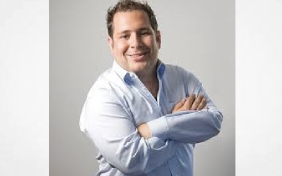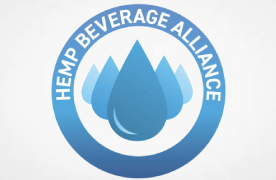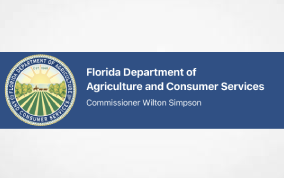First up we posed a number of questions on Delta 8 to.
Dr Stuart Titus the CEO at Medical Marijuana Inc.
Dr. Stuart Titus, Ph.D., is an industry innovator who has been involved in the growth of many companies in the cannabis industry, and started his relationship with Medical Marijuana Inc. by becoming its seventh investor. Titus’ is also a Wall Street veteran, where he was a bond trader for 11 years. Dr. Titus earned his undergraduate degree at Rollins College, and his Ph.D. from the Open International University.
“We were the first to create a U.S. pipeline of hemp-based CBD products to Brazil, Mexico and other countries, and we’ve had tremendous demand for our products. As we expand this pipeline in the coming years, we really believe we’ll see economic improvement not just in the United States, but all over the world.”
Dr. Titus has been involved in the development and investment of several industry-leading cannabis and industrial hemp businesses during his most recent career. Dr. Titus developed several prominent cannabis companies, including HempMeds, KannaLife Sciences Inc, and Kannaway, LLC.
Titus’ diverse background in both finance and healthcare is the impetus behind his strong passion to help others by supporting the greater cannabis industry. A graduate of Rollins College in Winter Park, Florida, Titus majored in economics and minored in business administration. He got his start on Wall Street where he worked as a bond trader for eleven years, managing a trading and underwriting department as a V.P. for CS First Boston Corp. Titus then went on to earn his PhD from Open International University, an educational organization affiliated with the World Health Organization.
Dr. Titus holds a Fellowship with the American Academy of Pain Management and clinical association with the American Association of Integrative Medicine. He practiced as a British Physiotherapist for over fifteen years, running clinics that specialized in integrative pain management and injury rehabilitation, treating over 40,000 patients. His first-hand experience with therapeutic hemp oil products as nutritional supplements led him to Medical Marijuana Inc. and drives him to continue to support the emerging cannabis medical marijuana and industrial hemp industries in the United States and abroad.
Colorado’s MED has just banned the sale of Delta 8 in rec retail. Do you think after the new rules in OR, WA & now CO that we will see Delta 8 regulated in every state?
Yes, I believe that Delta 8 will be regulated at both the federal level as well as at the state level.
What are your views of the regulation of Delta 8?
We support the Hemp Roundtable’s statements on psychoactive hemp and that it should be regulated separately from hemp, CBD, CBG and other non-psychoactive or non-intoxicating cannabinoids. Although, more like beer and wine as compared to hard liquor in the alcohol industry, we realize the immense popularity of Delta-8. We believe it should not be scheduled as a drug or narcotic, but that there should be some form of regulation to keep it from being abused.
Should we just see it as something not too dissimilar from Delta 9 and leave it be or is the fact that it needs processing to manufacture mean that it should be regulated as another compound?
There is the federal analog rule which may have application/implication for the scheduling of Delta-8. This has not yet been enforced or brought to a court of law and again I will make the analogy to beer and wine in the alcohol industry (equivalent to Delta-8) vs hard liquor (more equivalent to Delta-9).
We believe there is a benefit to Delta-8 but there should be labeling or warnings on packages so that consumers are informed of potential minor intoxication effects. We support Delta-8 but feel that it is not the same as CBD or CBG in that these cannabinoids should be treated as dietary supplements (if new Senate legislation passes). Delta-8 would not be a dietary supplement, but it should be available for sale in grocery stores, convenience stores and smoke shops.
Do you think these new regulations will be challenged in the courts?
Yes, I believe there will be court cases on Delta-8 unless Congress decides to regulate ahead of any potential litigation. So far, there have been no problems (no reported adverse effects) with the sale of Delta-8, although this is quite “new” within the past few months.
Are there states that you think they’ll let Delta 8 run and be sold along with other recreational products?
I would believe that the cannabis industry, separate from the Hemp and CBD industries, would want Delta-8 to be sold alongside its more traditional Delta-9 products. It is quite popular and will bring more consumers, especially if a state were to regulate it so that Delta-8 would ONLY be available in dispensaries. If the Federal Analogue Rule were to be more strictly enforced, then this may be the only pathway to legally sell Delta-8.
In an ideal scenario for the industry, Delta-8 would be regulated in a similar manner to beer and wine and then sold at grocery or convenience stores, as the effects and abuse potential is similar. With Delta 9, there are greater adverse effect risks and these should be explained at dispensaries that will carry and sell such products.
As and when Federal regulation comes along, would you expect to see Delta 8 provisions written into a cannabis omnibus bill?
Delta-8 could be part of this future cannabis omnibus bill or it may be left out and regulated separately. This depends on how far they would want to go, as hemp is a form of cannabis too. Already, we regulate hemp separately from marijuana forms of cannabis. I have also seen a Delta-10 product and this would definitely be part of the overall Cannabis Omnibus Bill of the future as the potency of Delta-10 increases beyond that of Delta-9. If Delta-8 continues with its popularity, then it may require a separate regulation, such as “cannabis light” – again the beer and wine analogy vs hard liquor in the alcohol industry.
Delta 8 appears to be the new bogeyman of cannabis or should we say those who aren’t that keen on cannabis. What is your view of the compound, something to celebrate or not?
Delta 8 is something to be celebrated as it takes marijuana forms of cannabis into everyday usage. Many people chose to relax after work with a beer or glass of wine and D8 provides this slight relaxation effect within the fringes of the intoxicating cannabis arena (Delta 9).
With Delta 8, one is not going to have an anxious or paranoia episode as can be common for newcomers to marijuana forms of cannabis – especially with high concentration of THC that is readily available today. D8 may well assist with relaxation and sleep.
The enormous popularity in such a short period of time reflects changing consumer preferences and D8 provides the perfect solution to lower regulations for innovative forms of cannabis. Here, we could easily support the federal regulation of Delta 8 just as beer and alcohol are more lightly regulated vs hard liquor in the alcohol industry. My view – this is definitely an innovation in cannabis to celebrate!
Delta-8 appears to us at Cannabis Law Report, the canary in the coal mine for new cannabis compounds. Is it important to think very carefully how 8 is regulated and managed as a template for the many other compounds yet to come?
We used to have “medicinal alcohol” in our country, and this was only available via a doctor’s prescription during the Prohibition Era. Long-term use of alcohol is quite harmful and severe liver/brain toxicity can lead to severe health impairment. Cannabis has been stigmatized but long-term use is far less toxic to the body than alcohol. So, if we are going to regulate alcohol but allow for its sale, we certainly should allow a cannabis form of relaxation that shows far less long-term harm. With Delta 8, we have a great opportunity to finally do cannabis justice and have Delta-8 sold in a similar manner to beer and wine.
Do you think there would be such a fuss about 8 if it didn’t get people “high”?
The slight “high” seems to be part of the appeal but the relaxation and sleep benefits also carry broad appeal as well. But the “fuss” is largely about the huge consumer demand and the slightly intoxicating effect for sure. The States would be eager to tax its sale, but hopefully smart enough to allow for free-market activities.
How do you think the sector should start educating legislators and law enforcement about the many different compounds that are yet to be manufactured from the plant and how do we try to stay away from a new “reefer madness” over time a new compound is discovered?
The cannabis train has long since left the station and regulators are now just trying to catch up by advancing their knowledge of cannabis and cannabinoids. In 1996, California legalized medical cannabis yet today, with 37 US States allowing for medical cannabis sales, we still do not have an overall comprehensive cannabis/cannabinoid education program. Consumers, regulators, and legislators remain in the dark on cannabis. In my testimony before the FDA, I mentioned that with the use of CBD, people anecdotally feel less stress, less nervous and better able to cope with the pressures of society today. They also sleep better and aren’t as bothered by “Musculo-Skeletal Discomfort”.
Over time, the science and research on CBD now supports its usage as many studies are showing benefits for health as well as for quality of life. I went as far as to mention that non-psychoactive cannabinoids provide essential and vital nutrients that support our highest levels of health and wellness.
Bottom line, there definitely needs to be more formal cannabis-based education so that we can all get up to speed with the incredible demand for cannabis products by the consuming public. The legal cannabis industry is expected to exceed $40 billion in 2021 and CBD sales should reach $5 billion. With the size of markets and tax revenue streams assured into the future, one would think that states or the federal government would provide funding or grants for those groups to educate the general public, legislators, regulators and even the medical community. Overall, knowledge and education of cannabis are sorely lacking.
We also asked David Marelius of Infinite Chemical Analysis labs the same questions
Born and raised in San Diego, Dave attended San Diego State University in 2009 where he received his bachelor’s degree in chemistry. Dave then went on to earn his Phd from the joint doctoral program between SDSU and the University of California, San Diego, where, for his graduate work, he utilized organic and organometallic synthesis to make catalysts for water splitting, the conversion of water into oxygen and hydrogen for energy storage. As a graduate student, he received the IPMI Richard Rubin Memorial Scholarship in 2014 for his research in precious metals. He decided to apply his knowledge and experience to the cannabis industry, and has assisted in developing industry- leading methods of analyses for cannabis and hemp testing since co-founding the lab in 2016.
CO’s MED has just banned the sale of Delta 8 in rec retail. Do you think after the new rules in OR, WA & now CO that we will see Delta 8 regulated in every state ?
It’s no surprise to InfiniteCAL that Delta 8-THC is becoming more regulated every day, and we believe that it should be regulated nationwide. The products available on the market have been produced by synthetically converting cannabidiol (CBD) with potentially harmful catalysts to Delta 8-THC.
This procedure is a complex process that will also create other byproducts like Delta 9-THC and other compounds that have yet to be identified. If Delta 8-THC products are available for purchase, they need to be tested by a cannabis lab to ensure the products are safe and inform consumers what they are putting in their bodies.
What are your views of the regulation of Delta 8 .. Should we just see it as something not to dissimilar from Delta 9 and leave it be or is the fact that is needs processing to manufacture mean that it should be regulated as another compound
Delta 8-THC is a psychoactive cannabinoid, just like Delta 9-THC, and legislators should regulate it as such. It seems completely backwards that an unregulated product that gets people “high” and is synthesized in a lab can be sold at gas stations and smoke shops but naturally derived Delta 9-THC must go through rigorous safety testing and can only be sold and handled by licensed companies.
InfiniteCAL has seen cannabis products fail for high lead levels, the presence of mold, and carcinogenic pesticides. Regulators in legalized states have established guidelines to weed out these harmful products, so why isn’t the same being done for CBD and Delta 8-THC?
Do you think these new regs will be challenged in the courts?
Based on the amount of claims companies make about Delta 8-THC being federally legal, it’s only a matter of time until someone tries to challenge the new regulations in court.
However, Delta 8-THC is explicitly listed on the DEA 7370 Controlled Substance list, so it’s hard to imagine the cases ending in any other way than saying Delta 8-THC should be regulated like cannabis.
Are there states that you think they’ll let Delta 8 run and be sold alongside other rec products?
To InfiniteCAL, selling Delta 8-THC products in licensed dispensaries makes the most sense. Based on the way it’s produced, Delta 8-THC should be batch tested to ensure consumer safety. We already see products with Delta 8-THC submitted at the state compliance level in California.
The California Department of Public Health (CDPH) regulations stipulate that any cannabinoids that make up 5 percent or more of a product must be labeled. The only cannabinoid that has a limit for how much is allowed is Delta 9-THC. Every cannabinoid has its potential benefits, so as long as it is tracked through the METRC seed-to-sale software and passes state-mandated testing, producers should be able to sell these unique products at the retail level.
As and when Federal regulation comes along, would you expect to see Delta 8 provisions written into a cannabisomnibus bill?
InfiniteCAL believes that cannabis will be federally legalized in the near future. When the time comes, these regulations must address naturally derived cannabinoids compared to synthetically derived cannabinoids. Delta 8-THC isn’t the only cannabinoid that one can create in a lab.
Regulations must be drafted in a way to prioritize public safety. More research is needed before these products become widely available at the retail level.
Delta 8 appears to be the new boogeyman of cannabis or should we say those who aren’t that keen on cannabis. What is your view of the compound, something to celebrate or not?
The alarming part about Delta 8-THC is that someone is creating it in a lab instead of it naturally occurring in the plant. One thing you hear from lobbyists and activists pushing for legalization is that cannabis is great because it’s this all-natural plant that can be used as an alternative for prescription drugs.
One of the many processes of making Delta 8-THC includes converting pure CBD isolate with a catalyst such as hydrochloric acid or sulphuric acid, to name a few, which, if not appropriately neutralized, can be very harmful to consumers. With no research or clinical trials conducted on the effects of consuming these compounds, there is an elevated amount of risk selling Delta 8-THC products. Safety needs to be the number one priority when evaluating whether or not these products should be available for purchase.
Delta 8, appears to us at Cannabis Law Report, the canary in the coal mine for new cannabis compounds. Is it important to think very carefully how 8 is regulated and managed as a template for the many other compounds yet to come?
Absolutely, with over 150 cannabinoids identified in the cannabis plant, there is no doubt that various cannabinoids will ride the Delta 8 popularity train. It’s vital to create regulation in anticipation of unique products instead of catching up after it’s available to the public. Regulators should use the current Delta 8 market as a learning opportunity to address synthetic versus naturally derived compounds, psychoactive versus non-psychoactive cannabinoids, and the necessity of ensuring consumer safety as the industry continues to develop new products.
Do you think there would be such a fuss about 8 if it didn’t get people “high”?
Yes, Delta 8-THC would cause just as much of a fuss if it didn’t get people “high.” The issue is that it’s synthetically produced and not naturally occurring. Some chemicals potentially used to synthesize Delta 8 can be extremely harmful to consumers, especially when considering these compounds are being combusted and inhaled.
These chemicals include reagents like acids or catalysts, and consuming these compounds can cause serious illness. During the 2019-2020 vaping lung illness outbreak, there were 60 deaths reported due to Vitamin E acetate and other adulterants being added to vape cartridges. It should be the goal of everyone in the industry to take every step possible to prevent another vape crisis.
Research on whether or not new products are safe for consumption needs to be conducted prior to their availability on the market.
How do you think the sector should start educating legislators and law enforcement about the many different compounds that are yet to be manufactured from the plant and how do we try to stay away from a new “reefer madness” every time a new compound is discovered?
Based on the way cannabis has been treated in the United States, activists and researchers must take it upon themselves to educate legislators and law enforcement when new cannabinoids come to market.
InfiniteCAL is on the National Association of Cannabis Businesses (NACB) advisory board composed of other experts from across the industry. This advisory board recently announced that it adopted National Standards on Indoor Cultivation for cultivators across the country to learn about and implement the best practices for indoor cultivation. Legislators and law enforcement should work closely with the experts at NACB to understand the proposed standards and build them into future regulation.
We’d like to thank both Stuart & David for taking the time to answer our questions and look forward to approaching them again as new cannabis compounds hit the market.


















